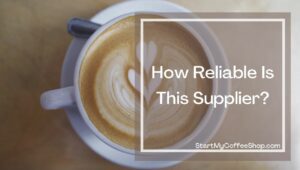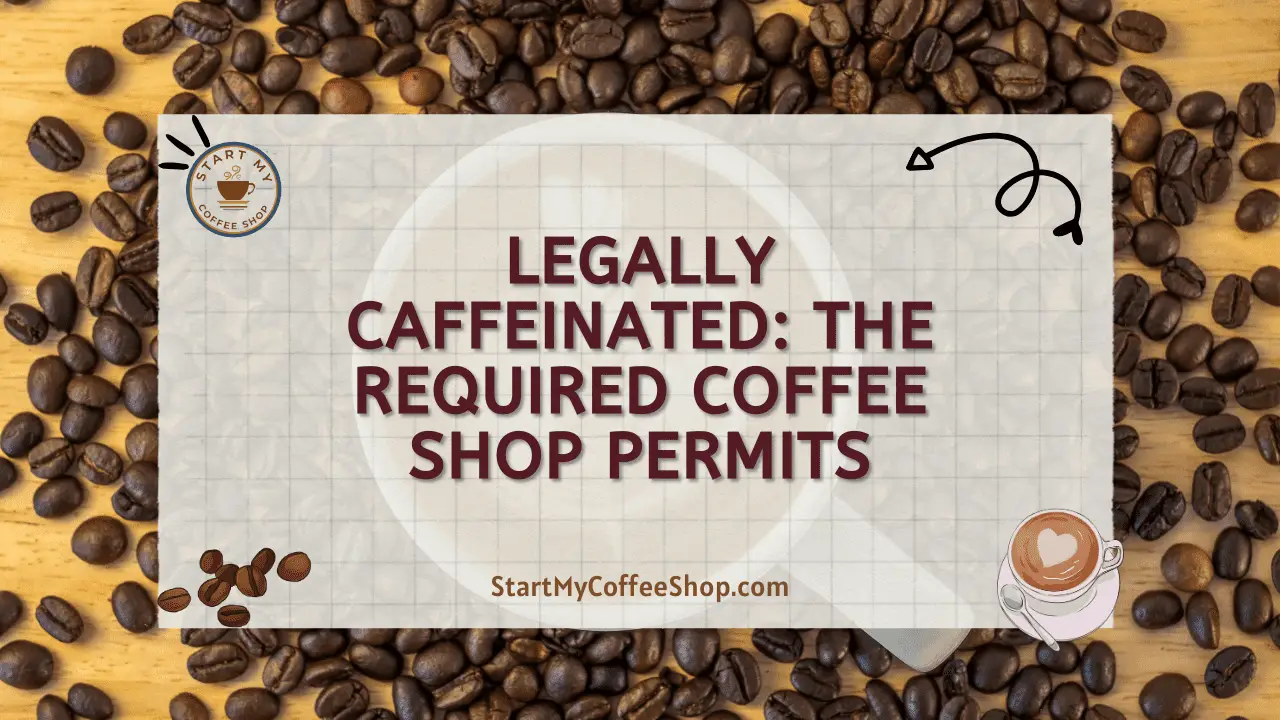Running a coffee shop requires lots of decision-making, starting with how to best choose a wholesale coffee supplier. What are the most important traits of a good supplier? A simple search of “Wholesale coffee suppliers near me” will give you a ‘starter list’. Let’s take a look at the next steps:
Choosing the best wholesale coffee supplier for your business requires several considerations, including: quality of their product, level of reliability, how well the two of you communicate, and level of support you will feel from the partnership. Keep in mind that choosing a supplier is a process, and starting with these criteria will be well worth your time.
Do I Want a Quality Product or Good Pricing?

The first question you’ll need to contemplate is “Where do you stand as far as quality v. pricing?” Of course, your answer is probably “I want both!” True, but which way do you lean? Knowing this will help direct you to either bigger distribution businesses or to those who are more expert and focused on specific coffees.
Brand-name suppliers are focused on mass production – volume. They have a lot of coffee to get out to a lot of stores. They also have marketing teams included in their overhead so that their pricing includes much more than a quality roasting bean. There’s nothing wrong with that! That’s how most people are able to afford the coffee they buy at supermarkets and bulk stores.
Smaller suppliers, however, need to make their mark. They need to focus on the product and, therefore, may be more willing to talk quality with you. You’ll want to discuss –
- What grade of beans do they use?
- What is their relationship with the farmer?
- What is the freshness level that can be expected from their shipments?
- Can their products be sampled, as well as new products as they come along?
Steering toward the smaller supplier may also provide your business with lower minimum order quantities. That sounds great, but keep in mind that smaller quantities do not usually produce great pricing.
If your focus is on the lowest pricing, you will find that benefit comes with fixed-term contracts. You and the supplier will agree on how much you will buy, in what time-frame, the range of quality, and at what price. Factors that will influence the pricing will be the order size you can guarantee, the level of quality you want, and the shipping standards you expect.
As your business grows, you will be in a stronger position to negotiate better prices. To ensure quality and pricing, ask the supplier to list pricing points in writing —- the pricing for different quantities, the pricing for different qualities, and the pricing for long-term customer loyalty.
Breakdown of the Different Coffee Drinks
How Reliable Is This Supplier?

Before committing to a supplier, you’ll need to do your homework. Find out what you can expect with this partnership. One of your first questions is “How long has this place been in the coffee business?” According to J.P. Morgan Chase & Company, “A large share of small businesses are young businesses”. Being young does not mean a lack of competence; but, the ones who make it past those first five years seem to know what it takes.
Next, do their past customers find them to be reliable? Can they give you customer references? If so, take the time to follow these up! Do the customers’ answers match what the potential supplier is telling you about quality, shipping time, price breaks, etc.?
Along with references, what type of customer reviews are you finding online? Reviews can be tricky and can range across the spectrum. What is most important to you and your coffee business as you are reading the reviews? Quality? Company hours? Customer service? Remember, it’s not easy to please 100% of the people 100% of the time, so there may be a foul remark in there. Focus on your business plan as you weed through the opinions of others.
You may also want to inquire about any awards, certifications, or acknowledgements this business has earned. Be careful rating this too highly, though, as some awards don’t carry much credence. You will also want to focus on the areas of accomplishment (quality, marketing, etc.)
Lastly, you must deal with compliance! Trade regulations are ever-changing, and you don’t need wrapped up in headaches with legal issues! Check their background, and be frank with your expectations that coffee industry guidelines will be followed.
Can I Reach the ‘Top Dog’?

Communication between buyer and supplier cannot be underrated, and should be among the topics discussed from the start. The potential supplier’s phone number will end up in your cell phone contacts, but who will you reach – the customer service rep, the truck driver, or the owner?
In most cases, you don’t need to speak to the top person. In fact, building relationships with your supplier’s employees is in your best interest!
What you do want to know from the top level, however, is “How can I reach you when I need to?” The manner in which this question is answered will give you a lot of insight into the type of relationship you will encounter!
Keep in mind that this question works both ways! You will want to be available for the supplier when their questions arise. Setting the tone for open communication is easiest when done at the front end of the relationship —- not after problems have started.
Setting the parameters for communication doesn’t have to be a stressful experience; in fact, use the manner of communication that fits you best and see if it works for them, as well. Do you prefer texting over phone calls? Do you have “quiet hours” where you will not be available? Is once a week enough talk time, or do they want to touch base with you more often?
Pay attention as you begin working with this supplier to see if you’re contacting them too much or too little. Shoot for the Three Bears model and find the amount of communication that is “just right”!
Busiest Times For Cafés and How to Manage it
Is This Partner a Good Fit?

Now that you have pared your list down to a few coffee suppliers, how do you determine which one is the “best”? Well, let’s remember that “best” is an opinion word. The only one who will know which supplier is best for you is YOU!
This is where your vision and your unique business plan come into play. You are getting ready to form a partnership, and typical partnership expectations should apply! Will this new partner be able to
- commit to you as a new business?
- help you grow?
- guide you if problems arise?
- keep an open line of communication?
- be reliable and trustworthy?
- be flexible, when necessary?
And, as in any partnership, you will want to discuss how you both will benefit from each other. Ask the question of how you can be a great customer for them! You’ll find it has more to do than just paying your bills on time, and being one of their best customers will end up benefitting you in the long run!
Many coffee suppliers have more to offer than just the coffee product itself:
- Discuss possible training opportunities that would help in showcasing their product.
- Check into any equipment that might be offered cheaper through a partnership with them.
- And, don’t forget to ask for any recipes or tips and tricks they may have that will complement the beans they offer!
As we’ve all heard, “Behind every successful person lies a … (fill in the blank with what you’ve heard!) The point is, success is not typically reached alone. In the coffee business, it’s your supplier that will be your source of support.
Coffee Grounds In The Garbage Disposal?
You’ve done it!

You have worked through some of the more important aspects of initiating a buyer-seller relationship as you start to grow your coffee business. Only you will be able to choose the best wholesale coffee supplier for the business plan you’ve developed.
Now, you can start getting quotes on products and services, and enjoy some samples to find the tastes that match your coffee house vision. Plan on contacting between three to five potential suppliers to start. They need to know they are competing with others for your business!
If pricing seems to be comparative within the group, push for something that will set them apart –
- Faster shipping at no extra cost
- Pricing discounts at lower quantities
- Longer payment terms
- Freebies! Samples, recipes, utensils, etc.
Your future supplier is waiting for you to call — Good luck!
Frequently Asked Questions
Wholesale coffee drop ship suppliers considered to be the best are:
1. Dripshipper
2. Temecula Coffee Roasters
3. Old Chicago Coffee Co.
4. Aroma Ridge
5. Blessed Bean Coffee
6. Path Coffee Roasters
7. Seattle Gourmet Coffee
Roasters can often find beans around $2 per pound. However, the ethical end price of coffee can be $15-$25 a bag!
javapresse.com/blogs/buying-coffee/how-much-pay-for-coffee-beans
One benefit of buying wholesale coffee is a reduced cost. Buying wholesale allows you to purchase in bulk bringing down the price compared to retail locations.
To learn more on how to start your own coffee shop checkout my startup documents here
Please note: This blog post is for educational purposes only and does not constitute legal advice. Please consult a legal expert to address your specific needs.

Hi! I’m Shawn Chun
My adventure in coffee began when I first launched my first coffee shop back in the early 2000s. I had to figure out so many things on my own and to make it worse within 2 years of opening two large corporate coffee chains moved in just blocks away from me!
As I saw smaller and even some larger coffee shops in the neighborhood slowly lose customers to these giant coffee chains and slowly close up shop, I knew that I had to start getting creative…or go out of business.
I (like you may be) knew the coffee industry well. I could make the best latte art around and the foam on my caps was the fluffiest you have ever seen. I even had the best state-of-the-art 2 group digital Nuova Simonelli machine money could buy. But I knew that these things alone would not be enough to lure customers away from the name brand established coffee shops.
Eventually, through lots of trial and error as well as perseverance and creativity I did find a way to not only survive but also thrive in the coffee/espresso industry even while those corporate coffee chains stayed put. During those years I learned to adapt and always faced new challenges. It was not always easy, however, in the end, I was the sole survivor independent coffee shop within a 10-mile radius of my location. Just two corporate coffee chains and I were left after that year. All told the corporate coffee chains took down over 15 small independent coffee shops and kiosks and I was the last one standing and thriving.
Along the years I meet others with the same passion for coffee and I quickly learned that it is not only “how good a barista is” that makes a coffee shop successful, but the business side of coffee as well.
Hence why I started this website you are on now. To provide the tools and resources for up and coming coffee shop owners to gain that vital insight and knowledge on how to start a coffee shop successfully.
Stick around, browse through my helpful blog and resources and enjoy your stay! With lots of LATTE LOVE!
Shawn






